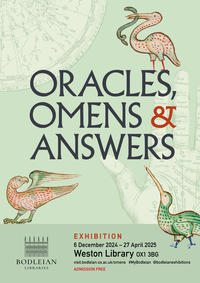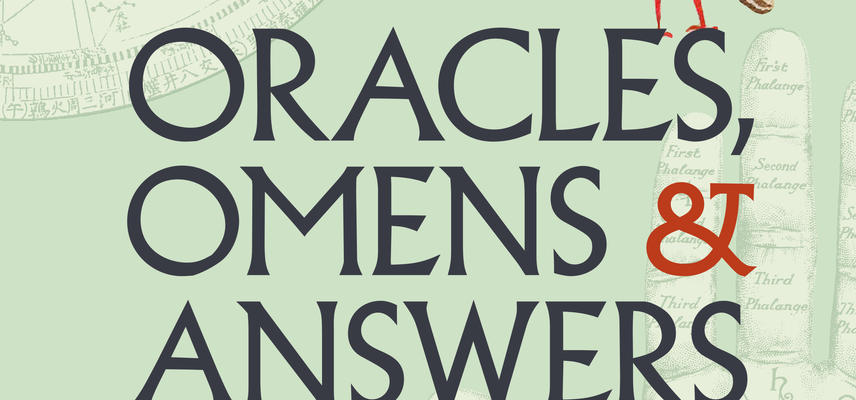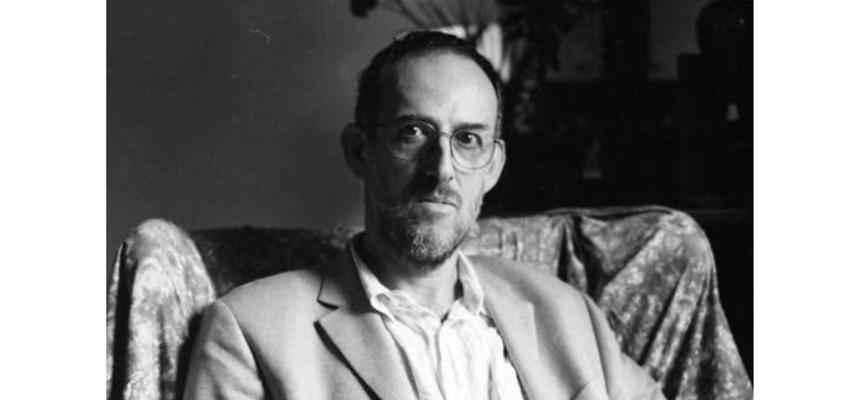New exhibition dedicated to divination explores our universal need to find answers
The Bodleian Libraries’ new exhibition, Oracles, Omens and Answers, co-curated by Professor David Zeitlyn, explores the many ways in which people have sought answers in the face of the unknown across time and cultures. From astrology and palm reading to weather and public health forecasting, the exhibition demonstrates the ubiquity of divination practices, and humanity's universal desire to tame uncertainty, diagnose present problems, and predict future outcomes.

Through plagues, wars and political turmoil, divination, or the practice of seeking knowledge of the future or the unknown, has remained an integral part of society. Historically, royals and politicians would consult with diviners to guide decision-making and incite action. People have continued to seek comfort and guidance through divination in uncertain times — the COVID-19 pandemic saw a rise in apps enabling users to generate astrological charts or read the Yijing, alongside a growth in horoscope and tarot communities on social media such as ‘WitchTok’. Many aspects of our lives are now dictated by algorithmic predictions, from e-health platforms to digital advertising. Scientific forecasters as well as doctors, detectives, and therapists have taken over many of the societal roles once held by diviners. Yet the predictions of today’s experts are not immune to criticism, nor can they answer all our questions.
Curated by Professor David Zeitlyn, an expert in the anthropology of divination, and Dr Michelle Aroney, whose research focuses on early modern science and religion, the exhibition takes a historical-anthropological approach to methods of prophecy, prediction and forecasting, covering a broad range of divination methods, including astrology, tarot, necromancy, and spider divination.
Highlights of the exhibition include: oracle bones from Shang Dynasty China (ca. 1250-1050 BCE); an Egyptian celestial globe dating to around 1318; a 16th-century armillary sphere from Flanders, once used by astrologers to place the planets in the sky in relation to the Zodiac; a nineteenth-century illuminated Javanese almanac; and the autobiography of astrologer Joan Quigley, who worked with Nancy and Ronald Reagan in the White House for seven years. The casebooks of astrologer-physicians in 16th- and 17th-century England also offer rare insights into the questions asked by clients across the social spectrum, about their health, personal lives, and business ventures, and in some cases the actions taken by them in response.
The exhibition will also feature a case study of spider divination practised by the Mambila people of Cameroon and Nigeria, which is the research specialism of curator Professor David Zeitlyn, himself a Ŋgam dù diviner. This process uses burrowing spiders or land crabs to arrange marked leaf cards into a pattern, which is read by the diviner. The display will demonstrate the methods involved in this process and the way in which its results are interpreted by the card readers. African basket divination has also been observed through anthropological research, where diviners receive answers to their questions in the form of the configurations of thirty plus items after they have been tossed in the basket.
Every day we confront the limits of our own knowledge when it comes to the enigmas of the past and present and the uncertainties of the future. Across history and around the world, humans have used various techniques that promise to unveil the concealed, disclosing insights that offer answers to private or shared dilemmas and help to make decisions. Whether a diviner uses spiders or tarot cards, what matters is whether the answers they offer are meaningful and helpful to their clients. What is fun or entertainment for one person is deadly serious for another.
Dr Michelle Aroney and Professor David Zeitlyn
The exhibition runs from 6 December 2024 - 27 April 2025 at the Weston Library. Admission is free. For more information and opening hours visit the Bodleian website.
A companion book, Divination, Oracles & Omens edited by Professor Zeitlyn and Dr Aroney is available here




